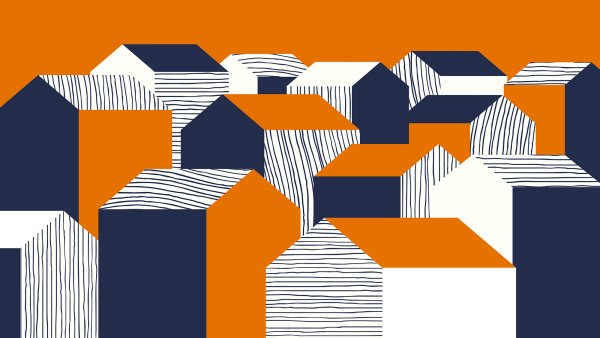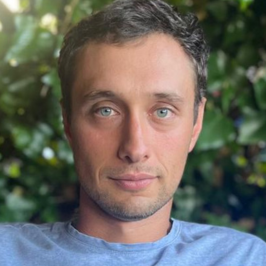
Americans today are facing a troubling rise in social isolation and a decline in trust within their communities—trends that were intensified by the COVID-19 pandemic and that pose serious challenges to our democracy. Research shows that when people know and trust their neighbors, they’re far more likely to engage civically: voting, volunteering, even running for local office.
Building—and rebuilding—this trust leads to a healthier democratic culture, one of the Karsh Institute’s core areas of focus.
Building—and rebuilding—trust leads to a healthier democratic culture, one of the Karsh Institute’s core areas of focus.
This spring, Karsh Institute Practitioner Fellow Sam Pressler launched the "Civic Possibilities Neighbor Gatherings" initiative, providing microgrants to residents of Charlottesville and surrounding communities to host shared meals and activities with their neighbors.
The response has been tremendous: 69 applications were submitted from dozens of neighborhoods and communities, and 30 were awarded microgrants. By the end of April, approximately 500 people will have attended one of these gatherings, taking meaningful steps toward rebuilding social trust and invigorating civic life from the ground up.
Insights and reflections from the Civic Possibilities Neighbor Gatherings will be shared during a series of convenings hosted by Pressler as part of his fellowship, bringing together community leaders from across the country to build connections, strengthen civic infrastructure, and cultivate a growing network of place-based leaders committed to renewing civic life.
The first took place last week at the Karsh Institute. The second will be held this fall during the Institute’s Democracy360 (October 15–17)—a three-day event dedicated to shaping a thriving democratic future.

We sat down with Pressler to find out more about his project and to better understand how small gatherings can have significant impact in rebuilding social trust and civic life.
Q: How does the age-old approach of neighbors hosting neighbors strengthen our democratic culture?
Pressler: Democracy is not only about voting. The more Tocquevillian view is that democracy is first and foremost about the webs of association in day-to-day life. So, when we're active in community in ways that reflect participatory democratic processes, we’re actually building a culture that values participation. And through that experience, we’re establishing the relationships and trust that make democracy work.
Democracy is first and foremost about the webs of association in day-to-day life.
Our communities are the playgrounds of our democracy. Right now, it feels like the individual citizen is overshadowed by the big national state, corporations, and nonprofits. What we've lost is a sense of agency. Where we can realize that agency is in our neighborhoods, places of worship, and community groups. This project aims to bring some of that back.
Q: Why is this initiative resonating with people?
Pressler: People met with their neighbors more before the pandemic. A lot of that connection has died off—people are leaving their homes much less—and many people feel like they don't know their neighbors. That’s a big reason I think people applied for these microgrants.
At the end of the gatherings, we prompted our hosts to ask something along the lines of “What can we do next?” People have talked about facilitating block parties over the summer; others have talked about an ongoing series of potluck dinners; and others have identified improvements to their neighborhoods they want to work on together.
Q: Social isolation is on the rise. How is that impacting people’s trust in their communities?
Pressler: Research shows that people most disconnected from communal groups and institutions have low trust. Without those connections, it’s harder to get involved. People end up in a negative-feedback loop of disconnection, which contributes to distrust, which contributes to further disconnection.
Without connections, people end up in a negative-feedback loop of disconnection, which contributes to distrust, which contributes to further disconnection.
Institutional trust is downstream from interpersonal trust. And interpersonal trust is downstream from having consistent opportunities to build rapport with neighbors, friends, and other community members. It’s really easy to break trust. It's much, much harder to build it back.
Q: What moments or insights have stood out to you as the project has unfolded?
Pressler: At first, I was worried no one was going to apply. But the robust interest showed that people still want to do the work of planning and gathering with their neighbors. There’s hope in these little, particular sparks of interest.
This project also has shown that we can do a lot with a little through the microgrant approach. There's no overhead: With minimal resources and time spent on my part, we’ll likely reach more than 500 people.
This project has shown that we can do a lot with a little through the microgrant approach.
I hope this opens up the idea of what’s possible. You don’t need a $30,000 grant, much less a $300,000 grant. With $100 microgrants and some very light operating support, we gave people the permission structure and accountability to do something they may have wanted to do but felt some discomfort with: Bring their neighbors together.